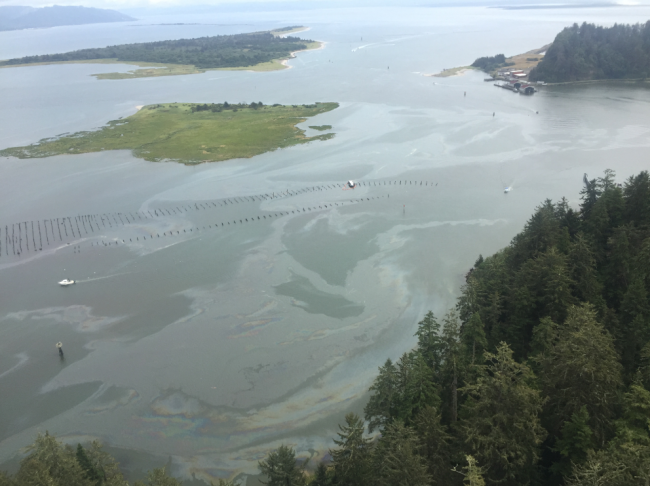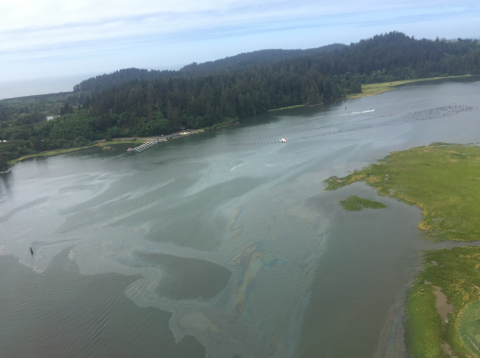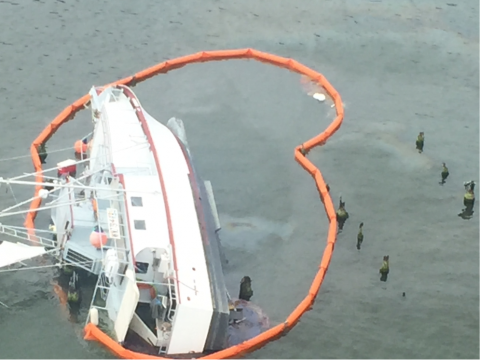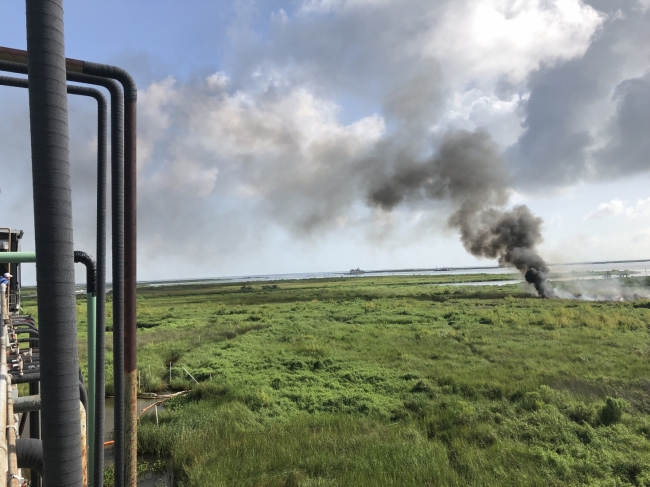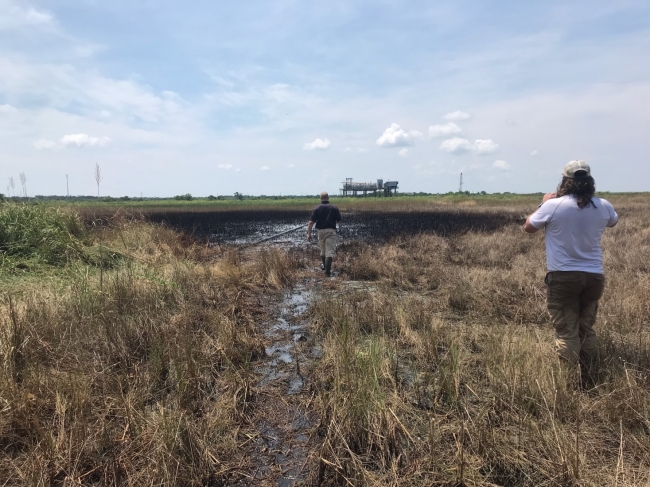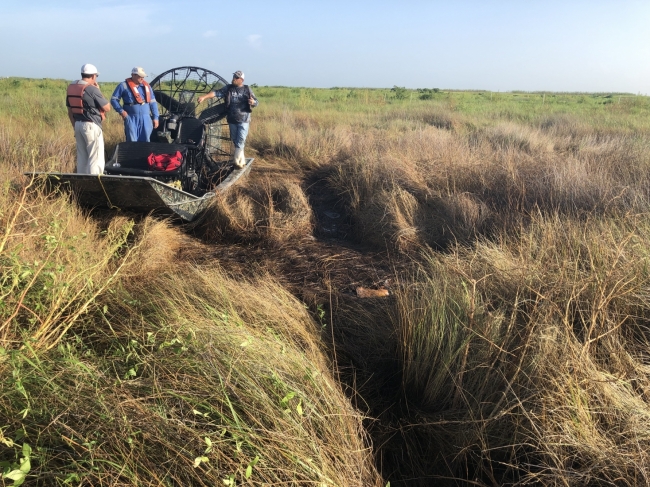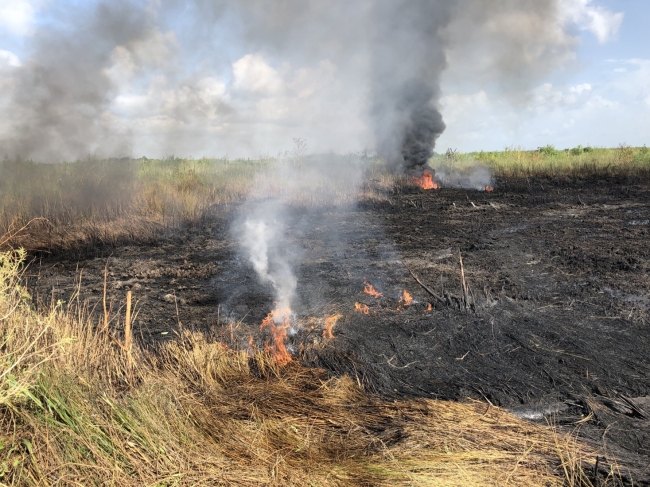Every month our Emergency Response Division provides scientific expertise and services to the U.S. Coast Guard on everything from running oil spill trajectories to model where the spill may spread, to possible effects on wildlife and fisheries and estimates on how long the oil may stay in the environment.
This month OR&R responded to 10 incidents, including oil discharges, sunken vessels, and other pollution-related incidents.
Here are some of August’s notable incidents:
Vessel Grounded and Leaking Off Cape Disappointment State Park, Washington
On Friday, Aug. 2, OR&R was notified of a 40-foot fiberglass hull fishing vessel that was hard aground off Cape Disappointment State Park near Ilwaco, Washington. In the early morning hours, the vessel missed a channel marker and grounded on charted pilings from an old structure. As the tide ebbed, the vessel remained stuck and capsized above the pilings.
At least one 12-inch crack in the vessel’s hull was observed to be leaking fuel. Containment boom was placed around the vessel and the U.S. Coast Guard requested OR&R provide trajectory for the leaking fuel.
The vessel was successfully de-fueled the following day, and removed from the water on Sunday, Aug. 4.
Oil Spill in Cox Bay, Louisiana Removed with In-Situ Burn
On Aug. 15, the U.S. Coast Guard was notified of a crude oil spill from a Time Energy flow line in Cox Bay, Louisiana. A reported 20 barrels have impacted approximately 200 ft. by 600 ft. of marsh. The source of the leak was secured and the U.S. Coast Guard requested evaluation of potential to conduct an in-situ burn.
OR&R Scientific Support Coordinator Brandi Todd joined a follow up team from the Louisiana Oil Spill Coordinator’s Office, Department of Environmental Quality, and Department of Natural Resources on Aug. 16 to continue response actions and complete a detailed shoreline assessment. The team determined that the marsh was too dense for flushing water into the marsh.
The team concluded that in-situ burning was the most effective option to quickly and effectively remove the bulk oil and not cause long-term damage to the marsh. The in-situ burn took place on Aug. 21.
Here is the complete list of last month’s incidents, click on the links to find out more:
- Grounded F/V Koko
- Mystery Sheen, Southeast Oahu, Hawaii
- TPIC South Pass 24 W1 Central Facility
- Hilcorp Crude spill Terrebonne Bay
- S2 Energy Little lake, Turtle Bay, Jefferson Parrish, LA
- Napakiak School Tank Farm
- Disabled pleasure craft, Lanai, Hawaii
- Time Energy Cox Bay Crude Spill and In-situ Burn
- ArcelorMittal Burns Harbor
- Pleasure craft "The Lady" sunk

